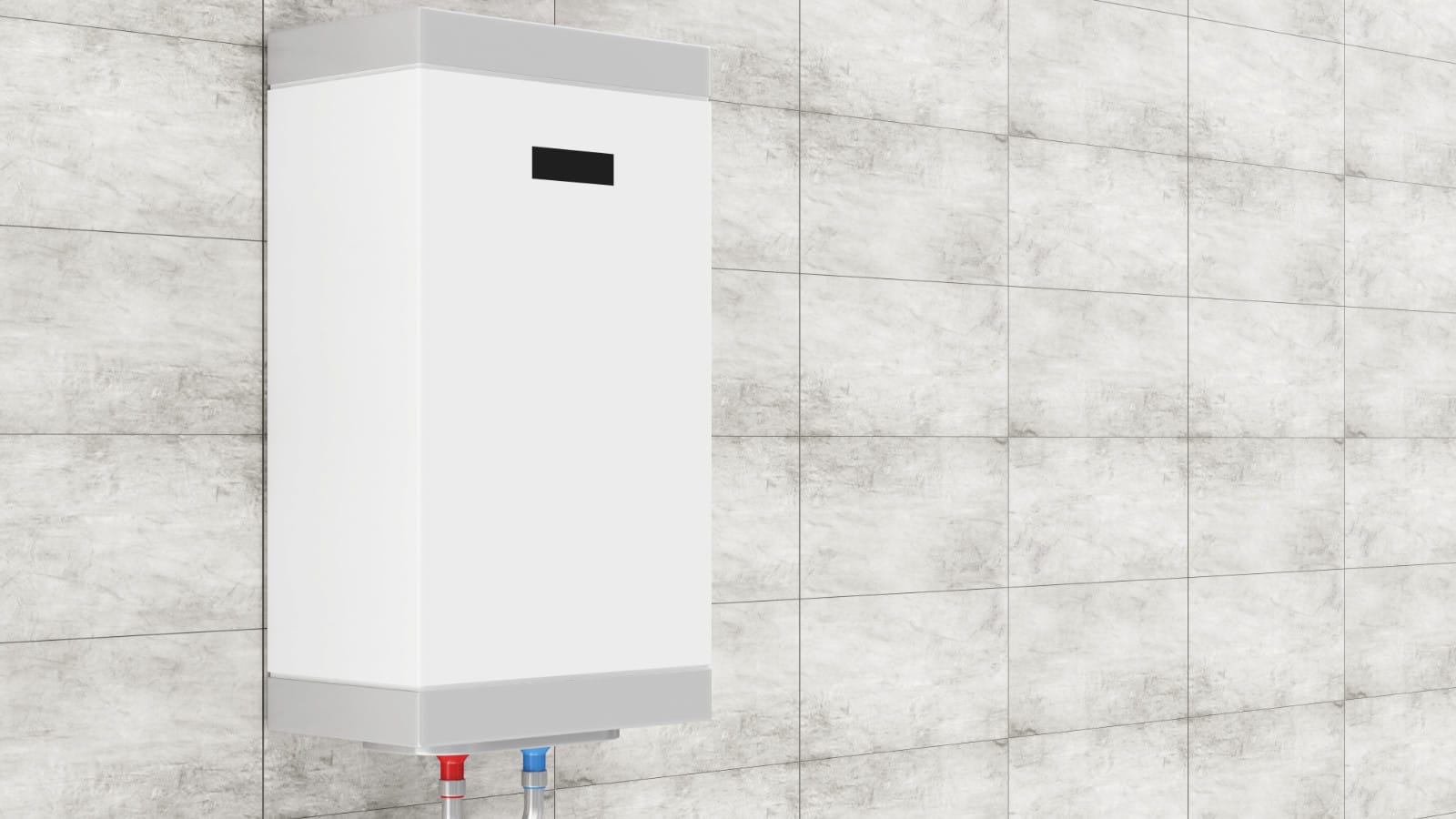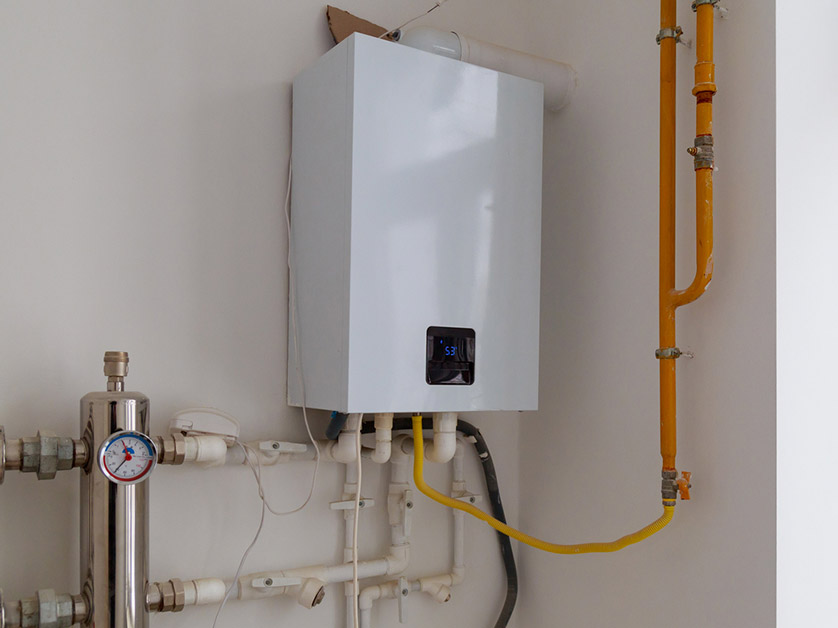Understanding The True Benefits Of On-Demand Water Heaters
Understanding The True Benefits Of On-Demand Water Heaters
Blog Article
We have found this article on Pros and Cons of Tankless Water Heater down the page on the web and concluded it made good sense to share it with you over here.

In a world where benefit and efficiency preponderate, it's no surprise that homeowners are continuously in search of smarter ways to manage their home's power consumption and convenience. One innovation that has steadily acquired popularity is the tankless water heater. Yet just what makes these systems stand out from the standard tank-based versions the majority of us matured with? Allow's dive in and explore the advantages of tankless hot water heater, helping you decide if it's time to make the switch in your home.
Intro
Image this: you enter the shower after a lengthy day, anticipating a relaxing cascade of warm water, only to be greeted by icy droplets due to the fact that the last person utilized everything up. Sound acquainted? Typical hot water heater store a set amount of hot water, suggesting you're at the grace of that container's supply. Tankless systems, on the other hand, heat water as needed. Say goodbye to running out mid-shower, no more fumbling with schedules just to make sure hot water is offered.
Comprehending Tankless Water Heaters
What Are Tankless Hot Water Heater?
Tankless hot water heater, in some cases known as on-demand or instantaneous water heaters, offer hot water only as it's needed. As opposed to saving gallons of pre-heated water, these units kick into action the minute you switch on the faucet. Water travels through a warm exchanger, heating up in real-time, implying you get a nonstop circulation of hot water without the demand for a big container resting lazily by.
Just how Do They Vary from Standard Systems?
Traditional heating systems hold a tank of warm water, utilizing power to maintain that storage tank at a consistent temperature. Tankless devices eliminate the standing supply, lowering thrown away power and the cumbersome footprint of a huge cylinder. Essentially, you're upgrading from a "stockpile" frame of mind to a "made-to-order" strategy.
Usual Kinds Of Tankless Devices
Tankless water heaters normally come in two varieties: gas and electrical. Gas designs tend to supply higher flow rates, ideal for bigger homes, while electric versions often serve smaller homes and are generally less complicated to set up. In addition, some systems are created for point-of-use (offering one component) while others can deal with the whole home's hot water demands.
Trick Benefits of Tankless Water Heaters
1. Unlimited Warm Water Supply
Ever before had to set up showers so everybody obtains their fair share of warm water? With tankless, that comes to be a distant memory. As long as the heater's flow ability isn't surpassed, you can take back-to-back showers without becoming a popsicle.
2. Energy Efficiency and Price Financial Savings
Say goodbye to heating a titan container's worth of water and maintaining it cozy all day. Tankless heating systems minimize standby energy losses, which can reduce utility bills. While the preliminary price could be higher, the long-term cost savings commonly justify the financial investment.
3. Space-Saving Style
If your home is short on storage space, removing the bulky storage tank frees up beneficial area. Tankless systems are portable and can typically be installed on walls, concealed in corners, or installed in tight energy closets without hogging the whole room.
4. Longer Life-span
A well-maintained tankless hot water heater can outlast its tank-based cousin. Standard tanks could last 10-15 years, while tankless models can maintain downing along for twenty years or even more, making them a solid investment with time.
5. Improved Water High Quality
Saving water in a container can sometimes bring about debris accumulation or a somewhat "off" taste. With tankless systems, fresh water is warmed on the spot, minimizing the possibilities of debris accumulation and potentially using cleaner-tasting water.
Factors to consider Before Switching
Though the benefits are compelling, it's a good idea to think about a couple of aspects prior to fully dedicating.
Initial Investment Expenses
Tankless heating units commonly include a higher upfront price tag. Between the device itself and prospective setup alterations, the initial expense may give you sticker shock. Yet keep in mind to view it as a long-lasting investment.
Setup Demands
Depending upon your home's facilities, you could need extra electric ability or gas line upgrades. Guarantee you recognize the installment requirements and consult with an expert to avoid surprises.
Evaluating Your Home's Water Use Patterns
If your family simultaneously makes use of multiple components with high warm water need, make sure the unit's flow rate satisfies your requirements. Understanding your usage patterns helps you choose the ideal size and type of tankless heater.
Upkeep and Care Tips
Tankless systems are fairly reduced upkeep, however they aren't set-it-and-forget-it appliances.
Routine Cleansing and Descaling
Hard water minerals can accumulate in the heat exchanger, affecting performance. Routine descaling (often advised every year) maintains the device going for peak performance.
Yearly Expert Evaluations
A yearly checkup from a professional ensures small concerns are caught early. They'll assess the system's efficiency, try to find leakages, and aid keep ideal effectiveness.
Guaranteeing Proper Air Flow
For gas designs, correct air flow is essential to safely eliminate exhaust gases. Ensure airing vent systems are clean and appropriately set up to avoid any prospective safety and security dangers.
Contrasting Different Brands and Designs
Not all tankless water heaters are developed equal.
Looking Into Trusted Producers
Try to find reliable brand names with a background of generating high quality devices. A reliable producer frequently offers far better consumer support and longer guarantees.
Reading Evaluations and Customer Comments
Customer reviews and comments from next-door neighbors or good friends that have gone tankless can use useful understandings. In some cases, real-life experiences can be much more telling than advertising sales brochures.
Setup: DIY or Professional?
While some homeowners cherish taking on projects themselves, tankless installation might not be the best time to burst out the toolbox.
Pros and Cons of DIY Installation
A DIY install could conserve cash, however it includes risks. Incorrect installation can lead to inefficiency or safety and security problems. If you come in handy and have experience, it could be possible-- but wage care.
When to Call a Professional Plumbing Professional
For many, calling a professional guarantees every little thing's done properly. An expert plumbing technician recognizes neighborhood codes, sizing needs, and venting criteria, decreasing the threat of mishaps.
Making best use of Efficiency
You have actually purchased a tankless system-- now maximize its performance.
Ideal Temperature Setups
Most people establish their systems in between 120-140 F. Changing the temperature level can improve convenience and cost savings. Experiment to discover a wonderful area that doesn't squander power.
Pairing with Low-Flow Fixtures
Wish to stretch your device's capacities? Take into consideration mounting low-flow showerheads and faucets. They decrease water usage, allowing your tankless system to deliver a consistent stream of hot water without stressing.
Ecological Impact
Tankless water heaters straighten with greener living goals.
Lowered Carbon Footprint
By utilizing less energy and only heating water as required, tankless systems can decrease your home's carbon impact, lowering your environmental influence.
Saving Natural Resources
Less power usage and much less thrown away warm water convert into fewer natural deposits being made use of, an environmental win-win.
Who Profits Most from Tankless Heating systems?
The beauty of tankless heating units is that they can suit a range of homes.
Huge Family Members vs. Solitary Occupants
Huge families may like the countless hot water supply, while solitary occupants appreciate the power savings from not warming an entire tank for just a single person's early morning shower.
House Owners with Limited Space
If your home is short on square video, losing the bulky tank frees up space for various other basics-- or possibly just extra breathing space.
Eco-Conscious Consumers
Going tankless aligns with environmentally friendly worths, ensuring you're not squandering energy or sources.
Future Trends in Tankless Hot Water Heater
The globe of home devices is ever-evolving, and tankless hot water heater are no exemption.
Smart Home Combination
Picture adjusting your water heater's temperature level via an application or receiving upkeep informs on your phone. As clever home technology advances, we'll see even more connection and benefit.
Improvements in Modern technology
R&D is constantly boosting warmth exchangers, making systems more efficient and resilient. Future designs might be also quieter, extra portable, and much better matched for differing climates.
Verdict
Selecting a tankless water heater is greater than simply upgrading your home's warm water system; it's buying lasting comfort, energy performance, and a greener way of life. By considering your home's water usage, being mindful of installation needs, and devoting to regular maintenance, you can appreciate a constant stream of warm water without the baggage of a bulky tank. As technology advances, you can anticipate also smarter, much more effective tankless solutions that not only make your life much easier yet additionally profit the planet.
Why You Should Consider a Tankless Water Heater for Your Home
Energy Efficiency and Cost Savings
Tankless water heaters, also known as on-demand water heaters, heat water only when needed. This means they don't waste energy keeping a tank of water hot constantly. This efficiency translates into substantial cost savings on your monthly energy bills.
Endless Hot Water Supply
One of the significant advantages of tankless water heaters is their ability to provide a continuous supply of hot water. Traditional tank water heaters have a limited capacity and can run out of hot water, especially during peak usage times. In contrast, tankless water heaters can provide an endless stream of hot water, making them ideal for larger families or homes with high water usage.
Space-Saving Design
Tankless water heaters are compact and take up significantly less space compared to traditional tank heaters. They can be installed on walls, under cabinets, or even outside, freeing up valuable space in your home. This makes tankless water heaters a great option for smaller homes or properties with limited space for a traditional water heater.
Longer Lifespan and Lower Maintenance
Tankless water heaters typically have a longer lifespan compared to traditional tank heaters. They can last up to 20 years or more with proper maintenance. Additionally, tankless systems are designed with replaceable parts, which can extend their lifespan further and reduce long-term maintenance costs.
Environmentally Friendly
Reducing energy consumption not only saves you money but also benefits the environment. Tankless water heaters contribute to a smaller carbon footprint by using less energy to heat water. Their energy efficiency and ability to minimize standby heat loss make them an eco-friendly choice for environmentally conscious homeowners.
Customized Temperature Control
Tankless water heaters offer precise temperature control, allowing you to set the desired temperature to meet your specific needs. This level of customization ensures you always have water at the perfect temperature for your comfort and usage requirements.
https://beantownservices.com/blog/consider-tankless-water-heater-for-your-home

I'm very interested by Why You Should Consider a Tankless Water Heater and I'm hoping you enjoyed reading my post. Appreciated our piece? Please quickly share it. Let someone else find it. We appreciate your readership.
Visit My Web Page Report this page